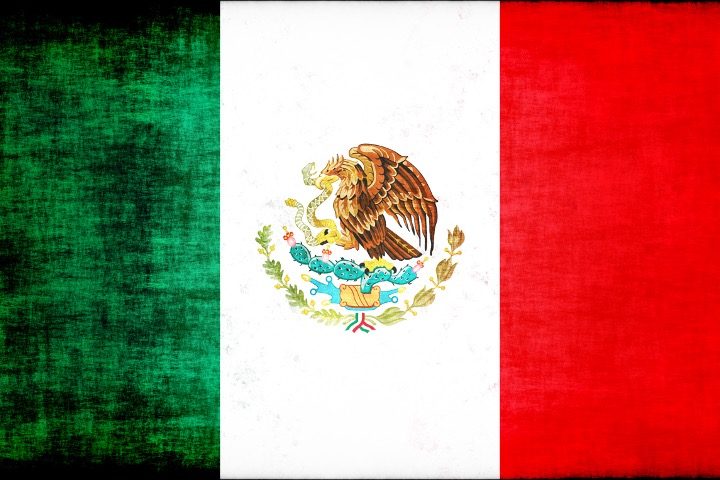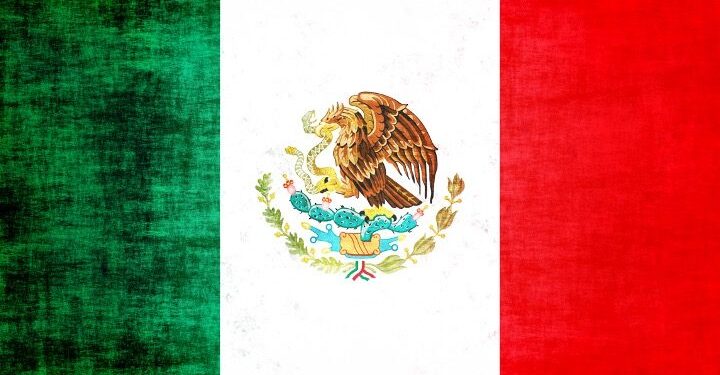
Mexico’s presidential election is slated for June 2 of this year. The political fate of one of America’s neighbors, especially when the migration and drug crises are major issues with which the nation is grappling, is certain to have far-reaching consequences for the United States.
But if the American Right was hoping to find a close ally in the next president of the Mexican republic, they are likely to get those hopes dashed. Mexico won’t be following El Salvador and Argentina and electing a Nayib Bukele or a Javier Milei anytime soon. This year, all three of the top candidates in the Mexican presidential race are left-leaning.
As Americas Quarterly (AQ) notes, the front-runner in the race right now is Claudia Sheinbaum of left-wing President Andres Manuel Lopez Obrador’s (AMLO) Morena party. Then there’s Xóchitl Gálvez, a senator for the party PAN. While PAN is considered right-of-center, Gálvez has called herself a “Trotskyite by origin.” And Jorge Álvarez Máynez of the Citizens’ Movement is a typical leftist who supports abortion and gay marriage.
Part of the reason the right has been unable to gain a strong footing in Mexico, as it has in other Latin American countries, is that the electorate itself strongly identifies as center. Per a survey by Vanderbilt University’s Latin American Public Opinion Project (LAPOP), approximately 51 percent of Mexicans see themselves as in the political center.
As a result, while politicians have their own strongly held ideologies, they typically play to the center with moderate rhetoric, avoiding the divisive left-wing policies that characterize the political discourse in countries like the United States in favor of more generalized populist rhetoric that speaks of combating corruption and improving public infrastructure. Politicians of all parties employ similar talking points.
Noam Lupu, associate director of LAPOP, told AQ that “Mexican politics has never emphasized left and right.” Lupu said he believes this is the reason Mexico did not have a dictatorship in the 20th century as did other Latin American nations, although he did note that the Institutional Revolutionary Party (PRI) completely dominated Mexican politics for decades.
But Lupu’s characterization of Mexico as one free from dictatorship is flawed. PRI was the single party in power for much of the previous century. It was formed in 1929 and held all the seats in the Mexican Senate until 1976, all the governorships until 1989, and the presidency until 2000.
A point rarely discussed by academics is the left-wing influence the long, single-party rule of PRI had on Mexican political life — and this is a major, often ignored factor of the leftward drift that has culminated now in all of Mexico’s leading presidential candidates being leftists.
For although it is rarely characterized as such, the infamous Mexican revolution, in which bandit-generals like Pancho Villa and Emiliano Zapata led a peasant uprising against the land-owning aristocracy, was a Marxist revolution. The consensus among Mexicans — from politicians to intellectuals to the common people — is that the Mexican revolution was a good thing, and it is a matter of national pride, commemorated as the start of their nation far more vigorously than the actual war of independence against Spain. Thus, the political establishment in Mexico has made Marxism and Marxist revolution part of the country’s founding myth, embedding leftism into the public consciousness.
PRI played a major role in all this, as it is the party that was born of the revolution (hence the name, Institutional Revolutionary Party). It should also be noted that PRI is a member of the Socialist International — the worldwide community of socialist parties.
Mexico may not have been a dictatorship of one individual with a cult of personality, but it was certainly a dictatorship of a party — much as was the Soviet Union after Stalin’s death or China following the death of Mao. Essentially, it was an oligarchy organized around the PRI party structure.
This is the case made by Mario Vargas Llosa — the Peruvian novelist, intellectual, presidential candidate and winner of the 2010 Nobel Prize in Literature — during a conference of Latin American intellectuals (including Mexican poet Octavio Paz, also a winner of the Nobel Prize in Literature) in Mexico City in 1990. At the time, Vargas Llosa called Mexico “the perfect dictatorship,” words that have become famous.
As he said at the time:
I do not believe that Mexico can be absolved of that tradition of Latin American dictatorship.
… I recall having thought many times about the Mexican case with this formula: Mexico is the perfect dictatorship. The perfect dictatorship is not communism. It is not the Soviet Union. It is not Fidel Castro. It is Mexico, because it is dictatorship camouflaged in such a way that it may not seem like a dictatorship.
But it does, in fact, have, if not one man, then a party’s permanence, an immovable party that allows enough space for criticism as long as that criticism serves it (because [allowing such criticism] “confirms” that it is a democratic party), but suppresses, by all means (even the worst) any criticism that in some way jeopardizes its permanence. A dictatorship that has also created rhetoric justifying it, a left-wing rhetoric — for which, throughout its history, it efficiently recruited intellectuals, the intelligentsia.
I do not think there is any case in Latin America where a dictatorship has so effectively co-opted the intellectual milieu — subtly bribing it through jobs, appointments, public positions — without demanding systematic flattery as vulgar dictators do. On the contrary, it asks for a critical attitude because that was the best way to ensure the permanence of that party in power. A sole party, in fact, because it was the party that funded the opposition parties.
While PRI’s one-party rule may have come to an end, the legacy continues to the present day. Marxism — albeit subtle Marxism — remains the dominant force in Mexican politics. It is the base that all parties, whether they claim to be right-wing or left-wing, adopt.
And who’s to say that the fall of PRI was not merely another trick to give the Mexican people the illusion of progress by making it seem that they now had many choices, when in reality all the choices are marching to the beat of the same drum?
Americans should learn from Mexico, because this is exactly the same pattern of control the Marxist-globalist elites wish to instill here.
































 Reaction & Commentary
Reaction & Commentary















